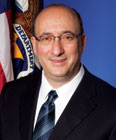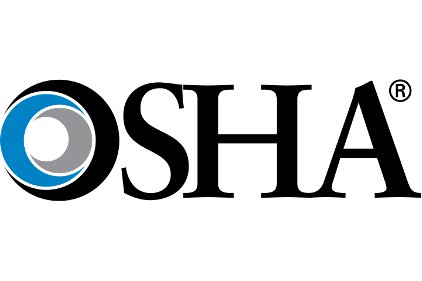 It’s not often the OSHA chief is interviewed by one of the Big 3 TV Networks. But that’s what happened recently when NBC’s Seth Freed Wessler interviewed OSHA boss Dr. David Michaels.
It’s not often the OSHA chief is interviewed by one of the Big 3 TV Networks. But that’s what happened recently when NBC’s Seth Freed Wessler interviewed OSHA boss Dr. David Michaels.
Dr. Michaels dived right into the political hot topic of wage inequality, but with a twist: he said the country must focus more on how injury and illnesses create income inequality.
“Workplace injury and illness can push workers out of middle-class jobs and make it hard to enter into the middle class in the first place,” he said.
Workplace injuries can be "devastating"
Dr. Michaels went on to say research shows workplace injury and illness has major negative impacts on worker income, relationships within families and spouses and their communities. “For families already struggling to save money, workplace injury can be devastating,” the OSHA chief told NBC.
Dr. Michaels had more to say about the connection between wages and safety. He said a clear connection exists between low wage jobs and unsafe jobs. According to the OSHA chief, employees in low income jobs face much greater risks of conditions “that will make it impossible for them to live in a healthy way, to earn money for their family, to build middle class lives.”
Fatalities get all the attention, but...
Dr. Michaels told NBC the country focuses on job fatalities at the risk of pushing to the periphery the “tens of thousands of workers who have degrees of disability because of injuries and illness.” He added that in the case of illness, such as work-related asthma, the sicknesses don’t get recorded on employer’s OSHA logs because employers are focused on the most traumatic injury. He said the less high profile health issues do not get attentions.
“Workplace illness almost never gets reported,” said Dr. Michaels. “That’s in part because medical practitioners rarely know how to identify an illness as work-related.”
A broken process
The NBC reporter asked why workers are not better protected against occupational diseases. The OSHA chief (not for the first time) admitted that “we have a standards process that is broken when it comes to health hazards.”
“It takes many years to pass a new standard,” he told NBC. “The result is that many workers in U.S. workplaces are not adequately protected.”
“It’s not that we won’t issue standards on particular hazards—we will because employers need to know what’s safe—but employers also need to take steps,” said Dr. Michaels. He said OSHA wants employers to go beyond mere compliance with regs to build a “culture of prevention.”
Injury and illness prevention programs (could he be referring to the controversial I2P2 plan?), medical surveillance, and other programs that have workers working with employers to find and address health issues are important steps OSHA encourages the business community to take.
And it’s in employers’ interest too. There’s a lot of evidence that companies that manage safety well are more productiveand outperform their competitors.
We can do much better. Illness and injury are preventable.
This interview has been edited.


